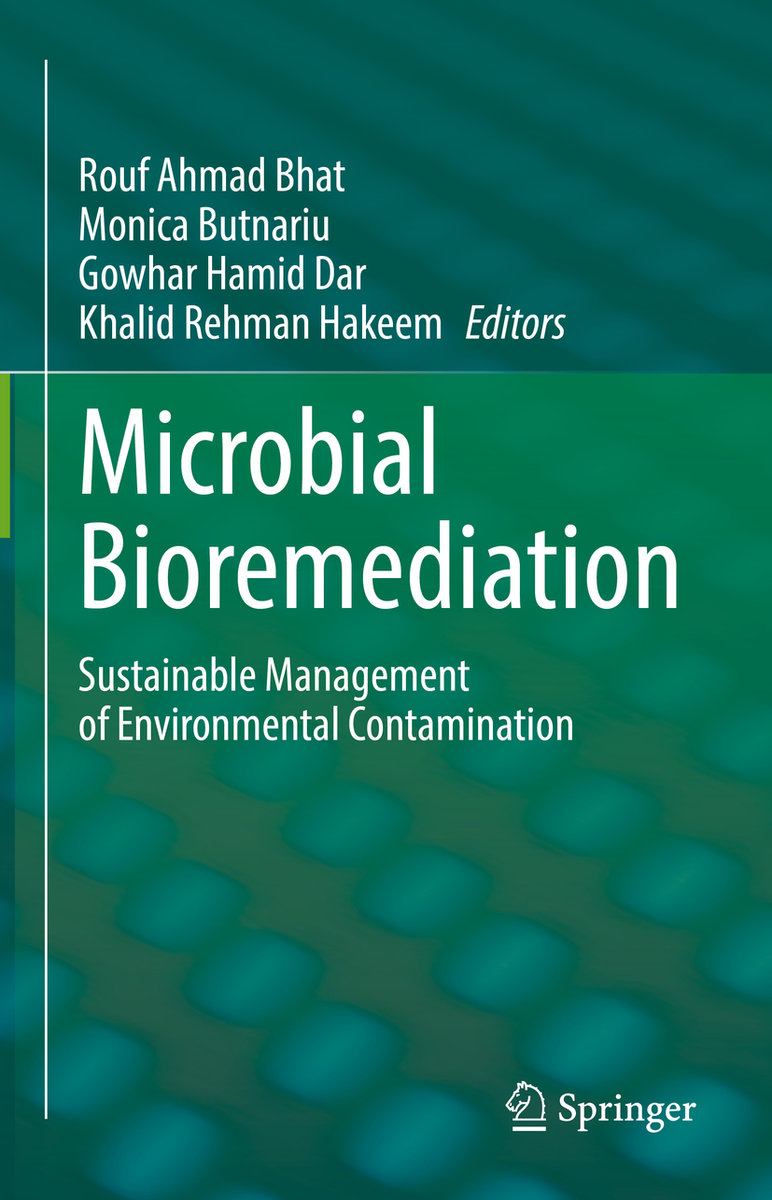Dr. Rouf Ahmad Bhat (PhD) has pursued his doctorate at Sher-e-Kashmir University of Agricultural Sciences and Technology Kashmir (Division of Environmental Sciences) and presently working in the Department of School Education, Government of Jammu and Kashmir. Dr. Bhat has been teaching graduate and postgraduate students of environmental sciences for the past 3 years. He is an author of more than 50 research articles (h-index 22; i-index 33; total citation 1400) and 40 book chapters, and has published more than 30 books with international publishers ( Springer, Elsevier, CRC Press Taylor and Francis, Apple Academic Press, John Wiley, IGI Global ). He has his specialization in Limnology, Toxicology, Phytochemistry, and Phytoremediation. Dr. Bhat has presented and participated in numerous state, national, and international conferences, seminars, workshops, and symposium. Besides, he has worked as an associate environmental expert in World Bank-funded Flood Recovery Project and also the environmental support staff in the Asian Development Bank (ADB) funded development projects. He has received many awards, appreciations, and recognition for his services to the science of water testing, air, and noise analysis. He has served as an editorial board member and a reviewer of reputed international journals. Dr. Bhat is still writing and experimenting with diverse capacities of plants for use in aquatic pollution remediation.
Dr. Monica Butnariu (PhD) heads the Romania Biotechnology and Environmental Sciences Group-Council for Nutritional and Environmental Medicine and also National Correspondent of the International Association for Plant Biotechnology, has 79 articles published in the Web of Science Core Collection-Clarivate Analytics that have been cited over 1730 times, with H-index =32 (WoS), and she has been serving as an editorial board member of reputed Journals and she has peer review activity. Prof. Butnariu has written several books and book chapters in different areas of chemistry. Her research interests focus on the Agricultural chemistry (biotechnology, environmental protection); Applied chemistry (instrumental analysis, biocides, biochemistry, agrofood waste); Material chemistry:(biomaterials); Nutritional Biochemistry, Pharmacology & Toxicology, Natural Products (different aspects), Medical Biochemistry, Chemical Ecology. Dr. Gowhar Hamid Dar (PhD) is currently working as an Assistant Professor in Environmental Science, Sri Pratap College, Cluster University Srinagar, Department of Higher Education (J&K). He has a PhD in Environmental Science with specialisation in Environmental Microbiology (Fish Microbiology, Fish Pathology, Industrial Microbiology, Taxonomy and Limnology). He has been teaching postgraduate and graduate students for the past many years at Post graduate Department of Environmental Science, Sri Pratap College, Cluster University Srinagar. He has more than 70 research articles ( h -index 13 ; i -index 16 ; total citation >500) in international and national journals of repute and a number of books with international publishers ( Springer, Elsevier, CRC Press Taylor and Francis, Apple Academic Press, John Wiley, IGI Global ) to his credit. Moreover, he is supervising a number of students for the completion of degrees. He has been working on the Isolation, Identification and Characterization of microbes, their pathogenic behaviour and impact of pollution on development of diseases in fish fauna for the last several years. He has received many awards and appreciations for his services towards the science and development. Besides, he also acts as a member of various research and academic committees. Further, Dr. Dar is Principal Investigator and Co-Principal Investigator for different R&D projects sanctioned by Govt. of India and Govt. of Jammu and Kashmir.
Dr. Khalid Rehman Hakeem (PhD, FRSB) is presently working as Professor at King Abdulaziz University, Jeddah, Saudi Arabia. After completed his PhD (Botany; specialization in Plant Ecophysiology and Molecular Biology) from Jamia Hamdard, New Delhi, India in 2011, he has worked as Assistant Prof. at the University of Kashmir, Srinagar for a short period. Later he joined Universiti Putra Malaysia, Selangor, Malaysia and worked there as Post Doctorate Fellow in 2012 and Fellow Researcher (Associate Prof.) from 2013-2016 respectively. He joined King Abdulaziz University in August 2016 and was promoted to professorship recently.
Dr Hakeem has more than twelve years of teaching and research experience in Plant Eco-Physiology, Biotechnology & Molecular biology, Medicinal plant research, Plant-Microbe-soil interactions as well as in Environmental studies. He is the recipient of several fellowships at both national and international levels. He has recently been elected as the Fellow of the Royal Society of Biology, London.Prof. Hakeem has served as the Visiting Scientist at Fatih Universiti, Istanbul, Turkey as well as at Jinan University, Guangzhou, China. Currently, he is involved with a number of international research projects with different Govt. organizations.
So far, Dr Hakeem has authored and edited more than 60 books with International publishers, including Springer Nature, Academic Press (Elsevier), CRC Press etc. He has also to his credit 121 research publications in peer reviewed international journals and 65 book chapters in edited volumes with international publishers.
At present, Dr Hakeem is serving the Editorial board member and reviewer of several high impact international Scientific Journals from Elsevier, Springer Nature, Taylor, Cambridge and Francis and John Wiley Publishers.


